Road to Climate Resilient Pakistan

Despite contributing less than 1% to global carbon emissions, Pakistan is disproportionately affected by climate change, ranking among the top 10 countries most impacted by climate disasters. Recent examples include the devastating floods of 2022 and an ongoing heatwave, with temperatures soaring as high as 53 degrees Celsius. These impacts are largely driven by the industrial activities of first-world countries, making Pakistan bear the brunt of climate change.
Islamic Relief, in collaboration with the National Disaster Risk Management Fund (NDRMF), organized an event titled “Road to Climate Resilient Pakistan: Curtailing the Carbon Footprints.” The event aimed to identify and leverage climate finance opportunities to build a more climate-resilient Pakistan.
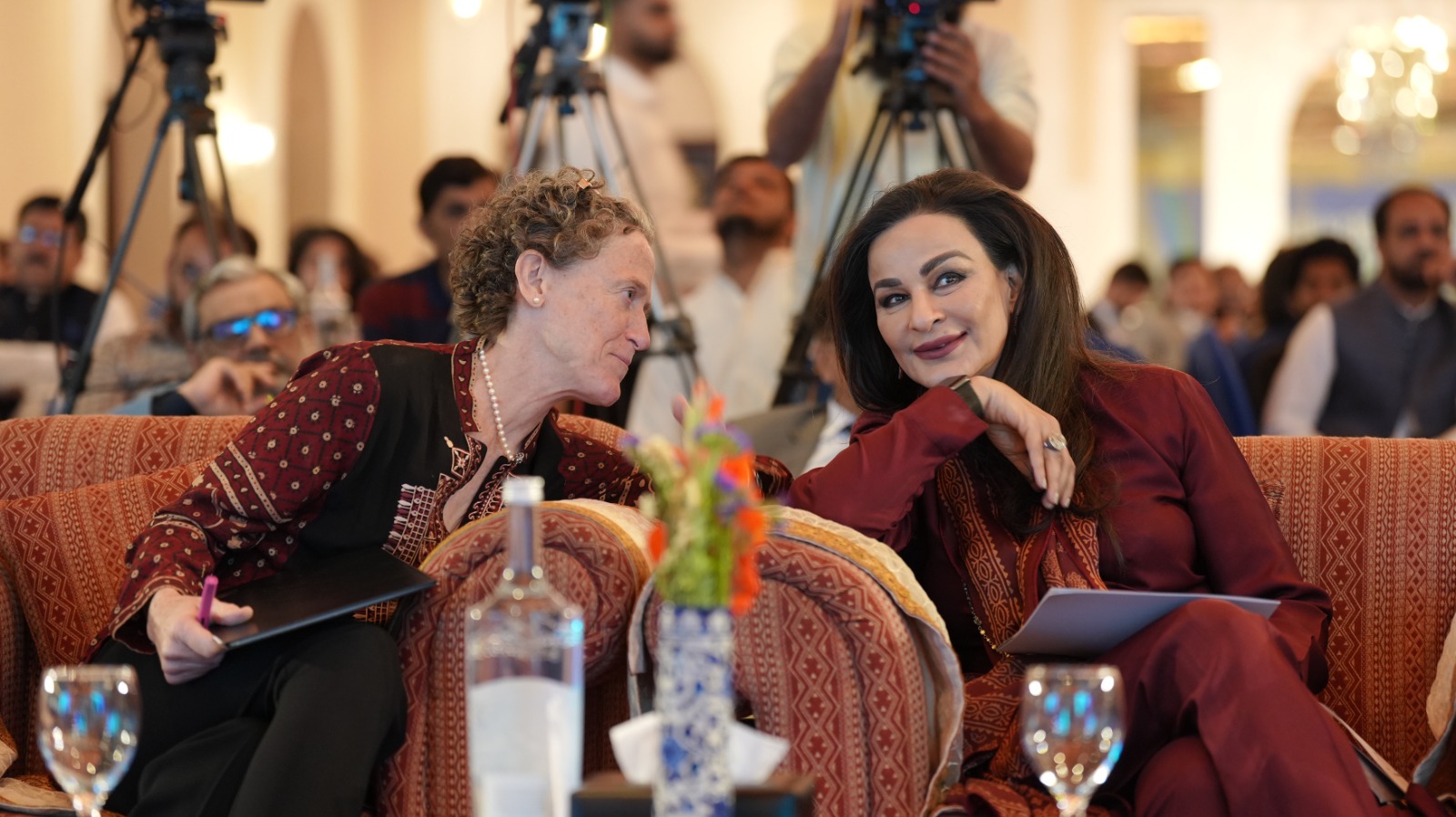
Senator Sherry Rehman was the chief guest at the occasion, while Leslie Scanlon, the Canadian High Commissioner, was the guest of honor. Other notable attendees included Asif Sherazi – Country Director Islamic Relief Pakistan, Bilal Anwar – CEO NDRMF, Yong Ye – Country Director of ADB Pakistan, and Ahmed Kamal, Chairman of the Federal Flood Commissioner. The event also saw a large turnout of representatives from national and international organizations, media, academia, think tanks, and development practitioners.
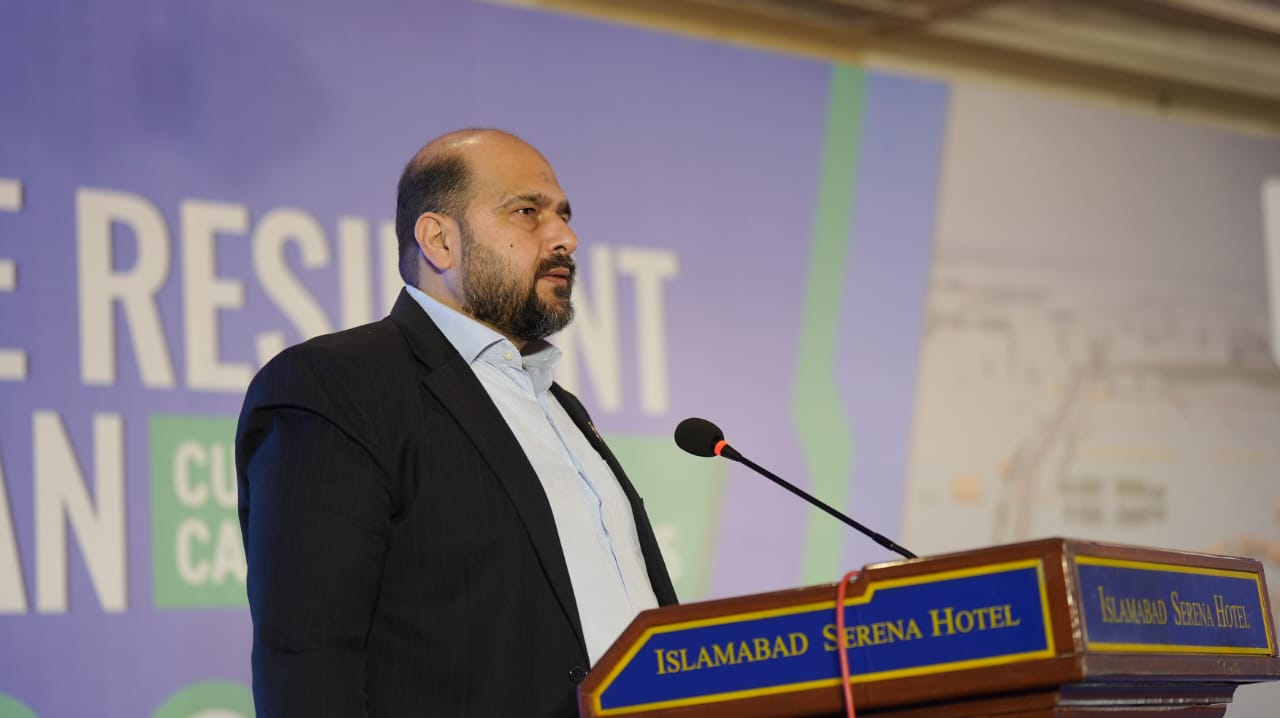
In his opening remarks, Mr. Asif Sherazi, Country Director of Islamic Relief, welcomed the guests and emphasized the urgent need to reduce carbon footprints. “Pakistan needs inter-sectoral cohesiveness and planning and above all the support of global north in new project types in agriculture, power storage, retiring fossil fuel assets, green hydrogen, green buildings and electric mobility. Projects that will help us to reach our goals, grow our economy, and prosper,” he stated. He urged for strengthened resilience, reduced vulnerabilities, enhanced adaptive capacities, and a unified call for both national and global actors to share responsibility in addressing this critical issue.
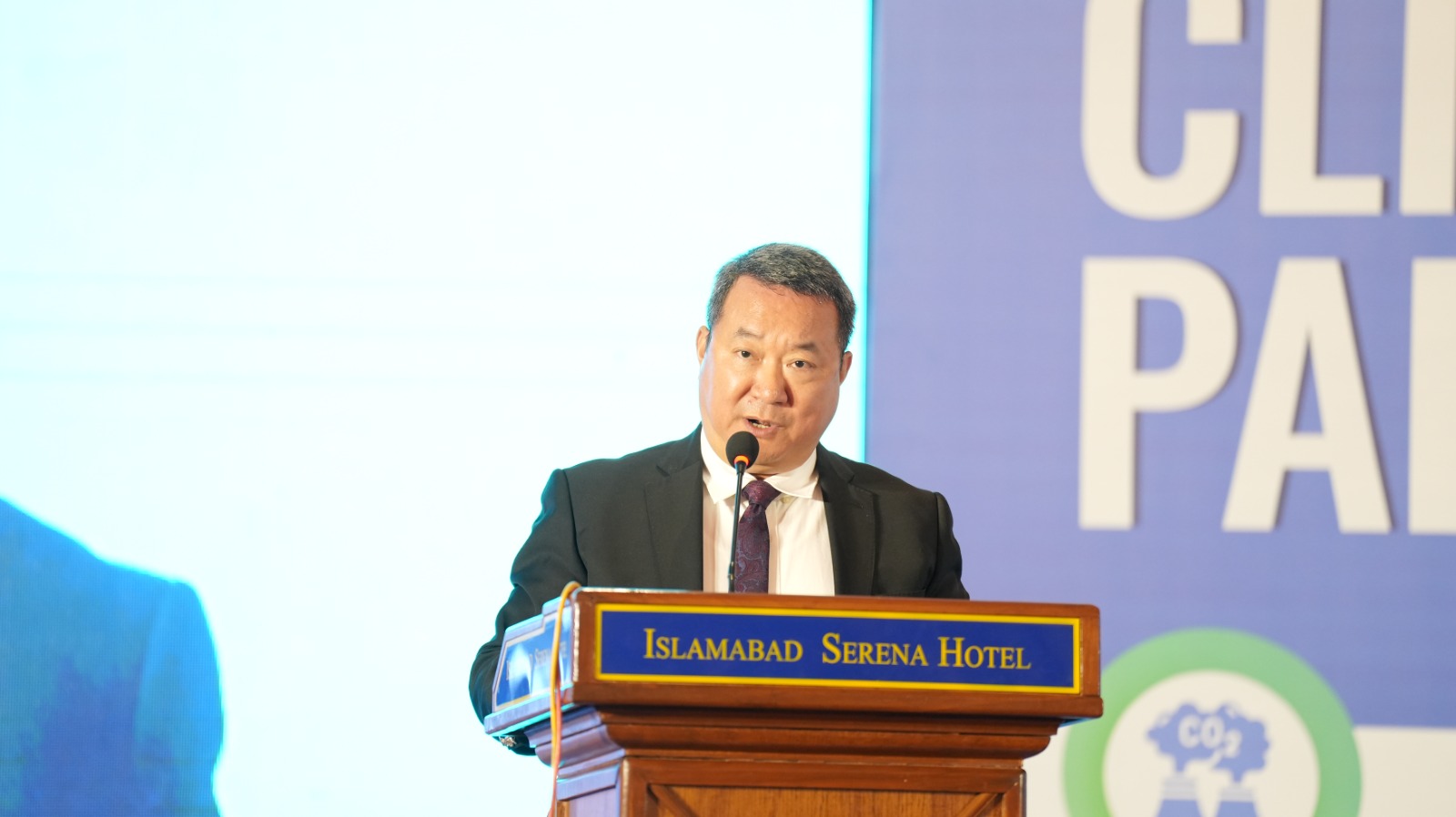
Mr. Yong Ye, Country Director of the Asian Development Bank Pakistan highlighted that while climate change poses challenges, it also presents opportunities for Pakistan to innovate and thrive. “Carbon market is a new frontier for Pakistan, where quality projects will compete for green financing. Resilience stands as a key pillar, and innovative approaches are strongly supported.”

The event included an articulate panel discussion on the rising carbon footprints and strategies to mitigate their impact in Pakistan. The panel was moderated by Ms. Sidra Iqbal, a renowned media personality. The panel comprised seasoned and diverse representatives from international humanitarian organizations, UN agency, civil society, thought leaders, and state representatives. They proposed solutions to the complex impacts of carbon footprints and emphasized the essential pillars needed to address these challenges effectively.
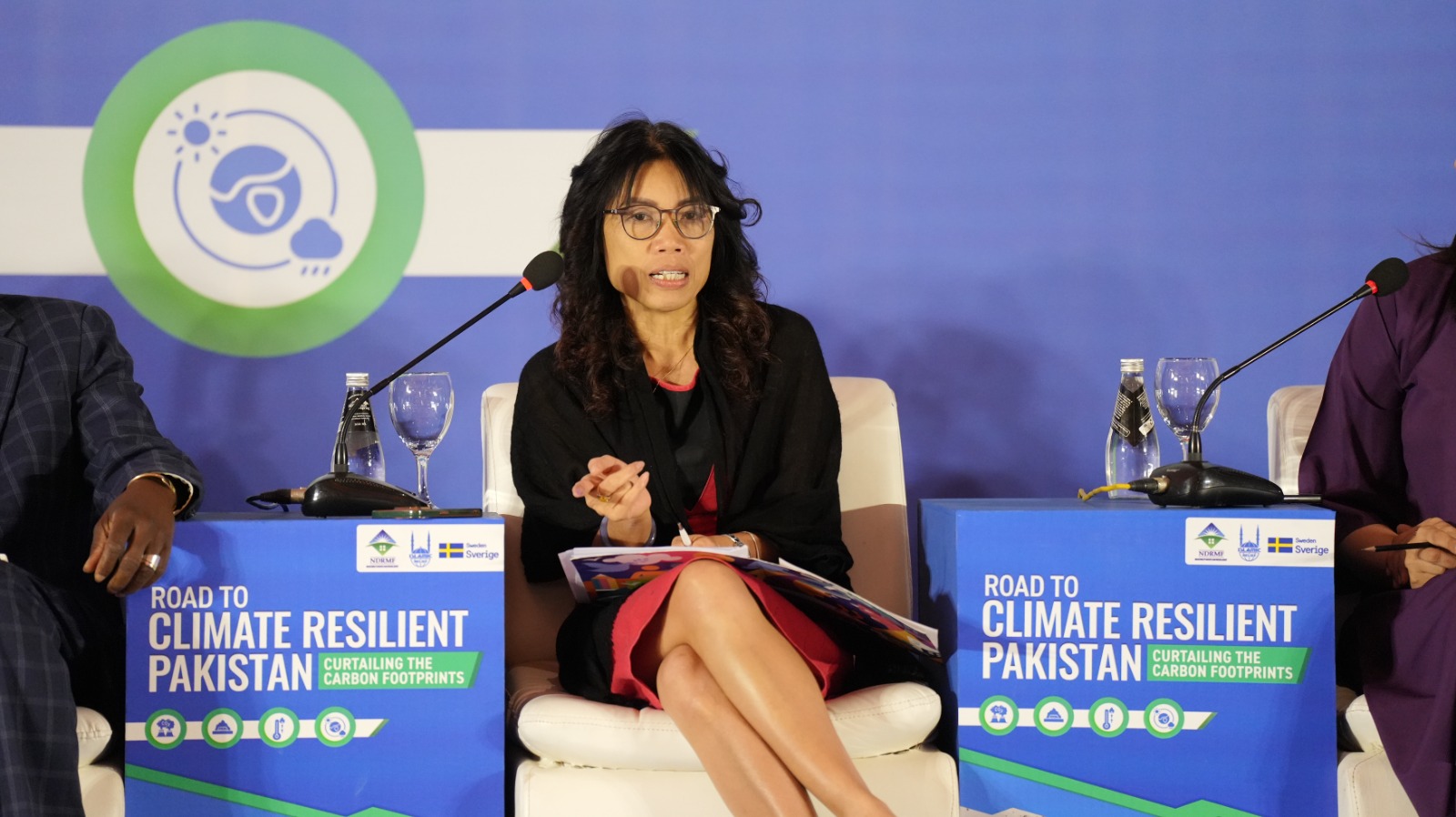
Van Nyugen, Deputy Resident Representative UNDP Pakistan said that, “Government leadership and robust policies are essential to securing climate financing. Voices have to be much louder to secure the funds. Government needs to make significant efforts on both national and household level.”
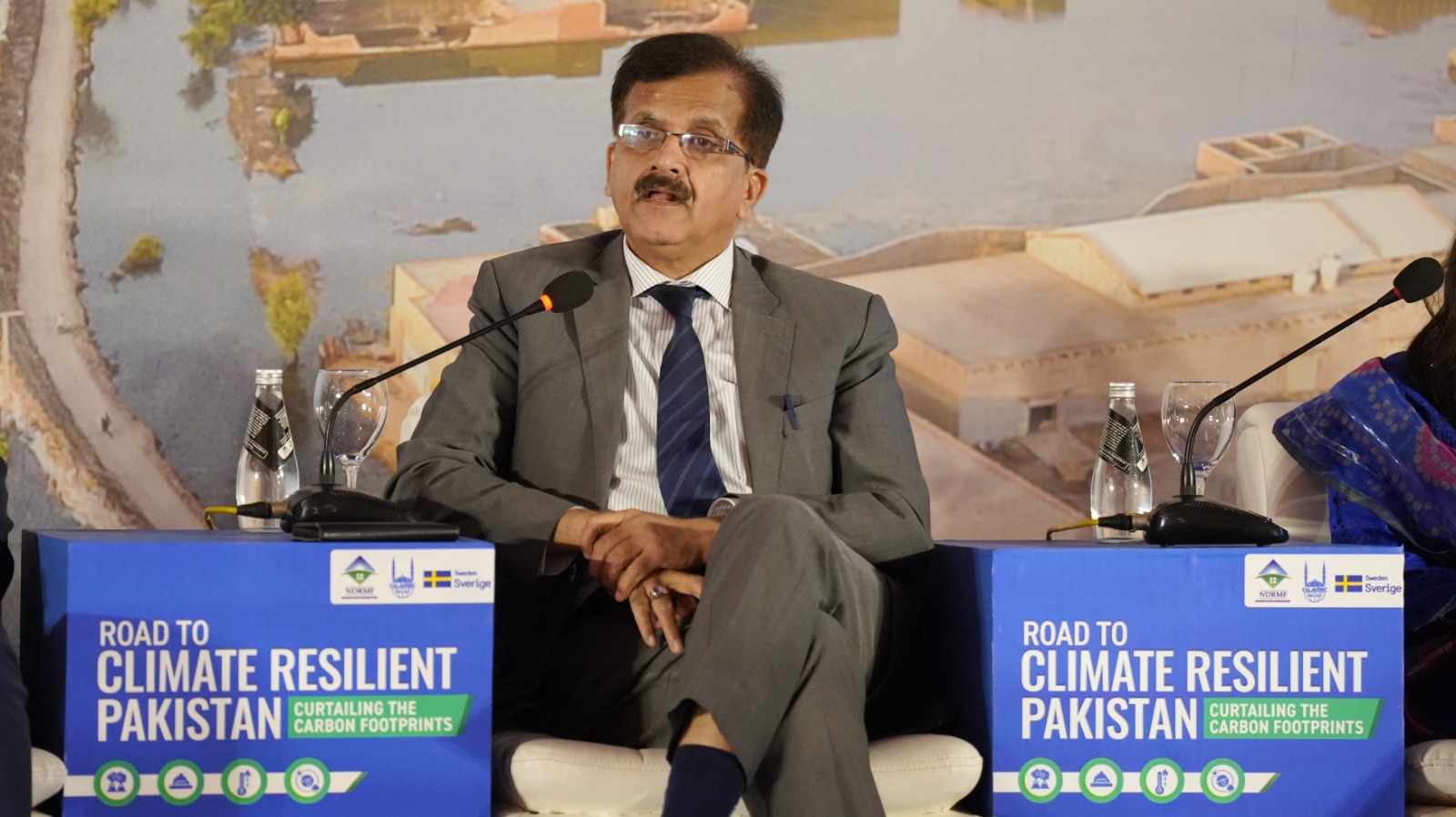
Ahmed Kamal, Federal Flood Commissioner highlighted the gap in financing stated that, “While we have strong strategies in place for preparedness, we lack the necessary funds to implement them effectively.”

Dr. Inoussa Kabore, Deputy Representative at UNICEF Pakistan, highlighted the severe impact of climate change-induced disasters on children, stating, “Globally, one billion children are at risk of survival due to inadequate measures taken to mitigate the impacts of climate change, a critical issue that needs to be addressed urgently.”
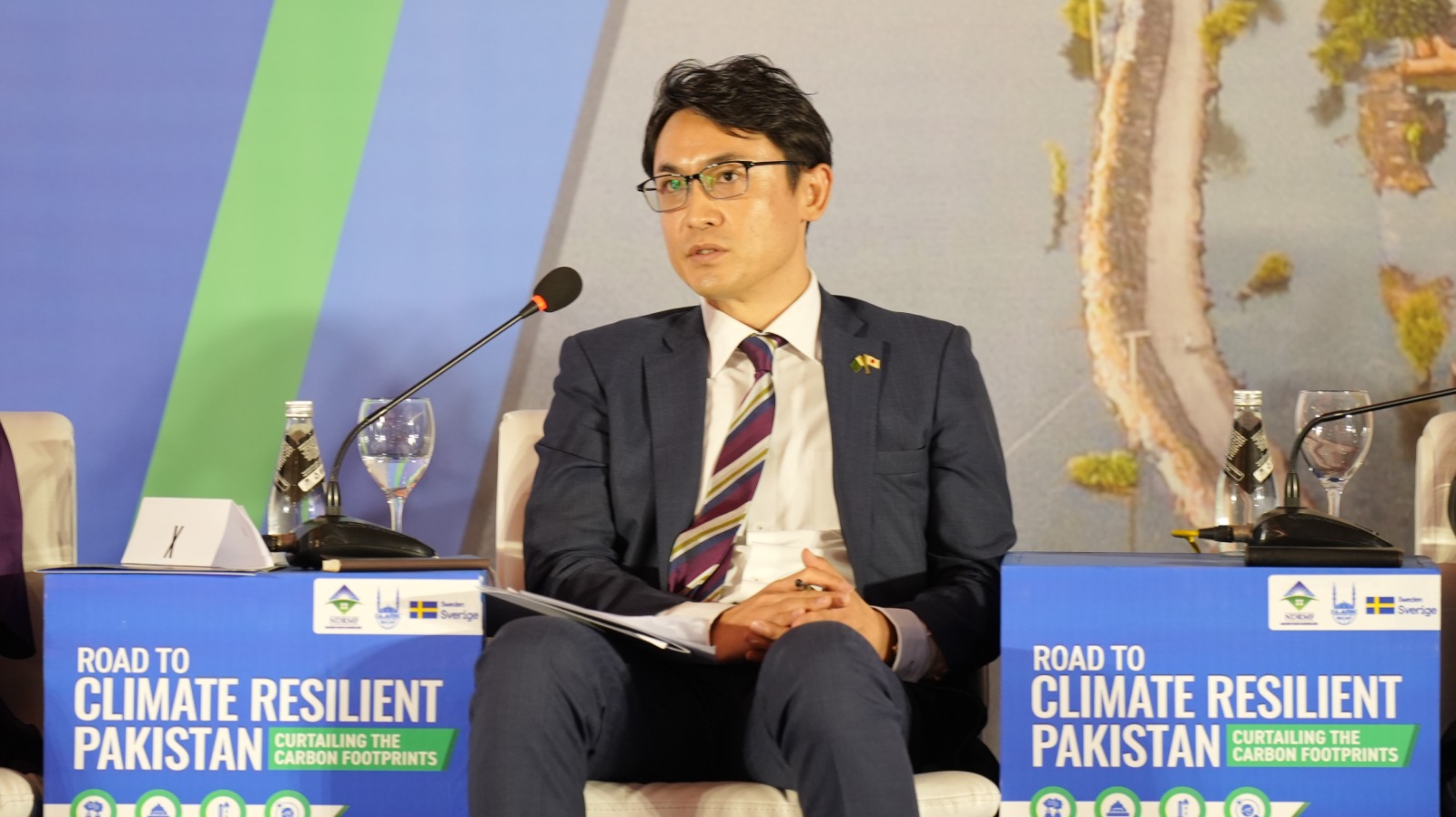
“The percentage of women suffering from climate disasters is higher. To address this, we must prioritize Women, Peace, and Security (WPS) efforts. Including women in Disaster Risk Reduction (DRR) initiatives is crucial for effective and inclusive disaster response”, said Kenta Kawamura, Counsellor/Head of Economic and Development Section, Embassy of Japan.
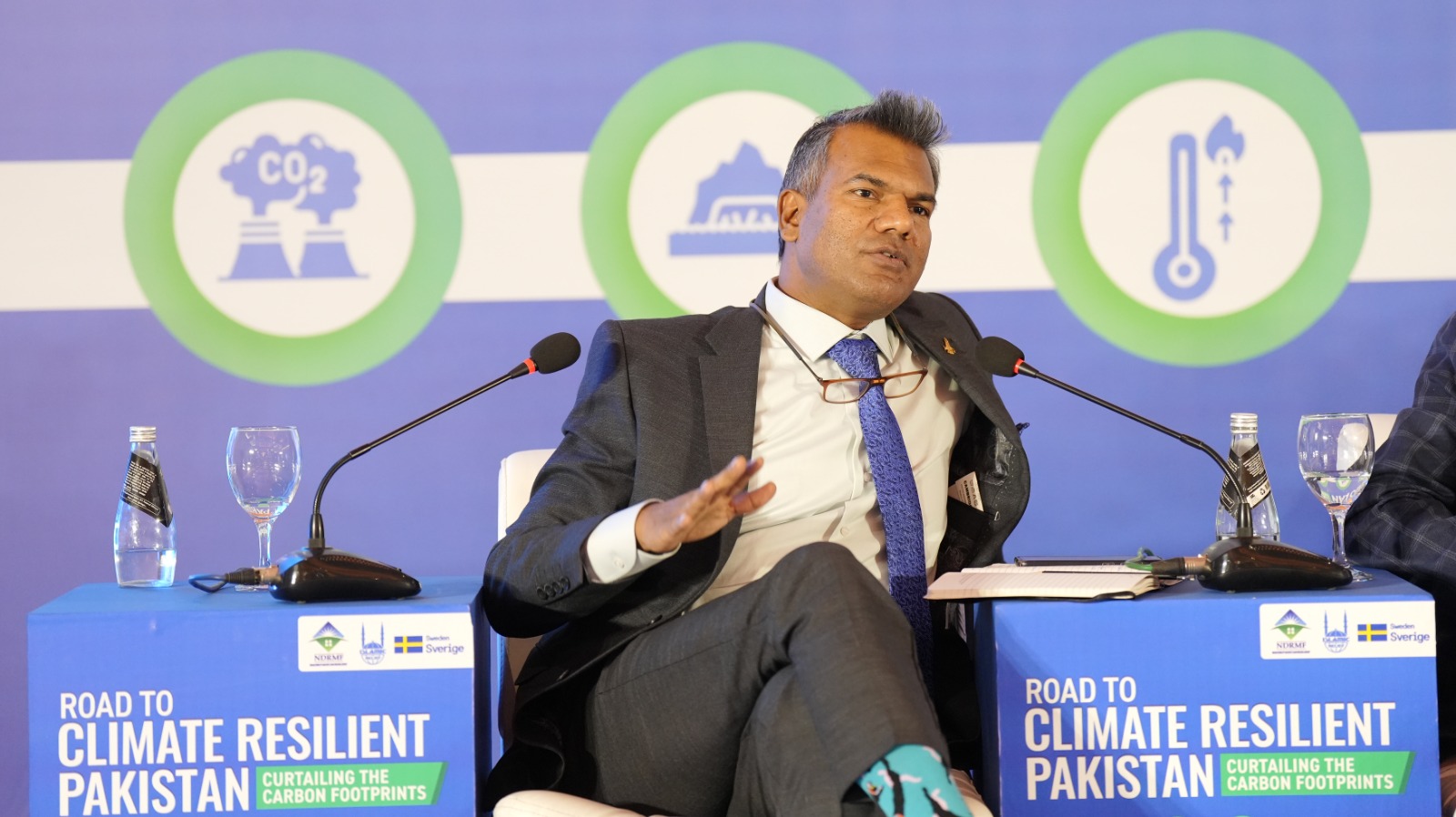
Aneel Salman from Islamabad Policy Research Institute (IPRI) enlightened about why people do not consider climate change as a threat is because it has no face. “It is challenging for the people of Pakistan to grasp the severity of climate change. The threat is already present, yet we often view climate change as a future concern.” Speaking about the carbon taxation he said, “Carbon tax increases the GDP.”
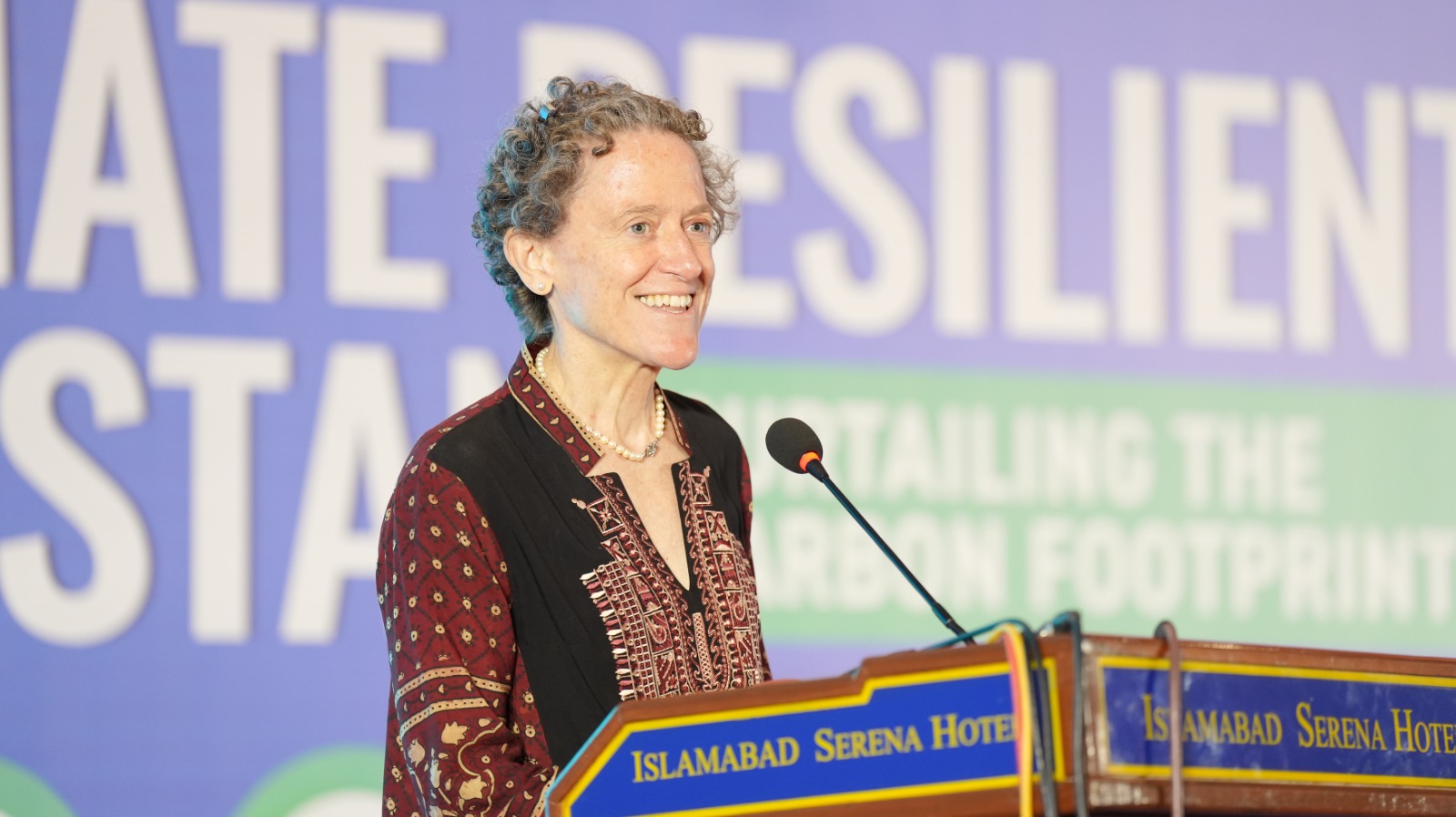
Canadian High Commissioner, Leslie Scanlon, shared solutions on how we can tackle the impacts of climate change and work together for a better future. “New climate crisis seems to emerge continually. Climate financing is vital to enhance community resilience against future shocks. Carbon pricing is a viable solution for transitioning to a low-carbon economy,” shared Leslie.
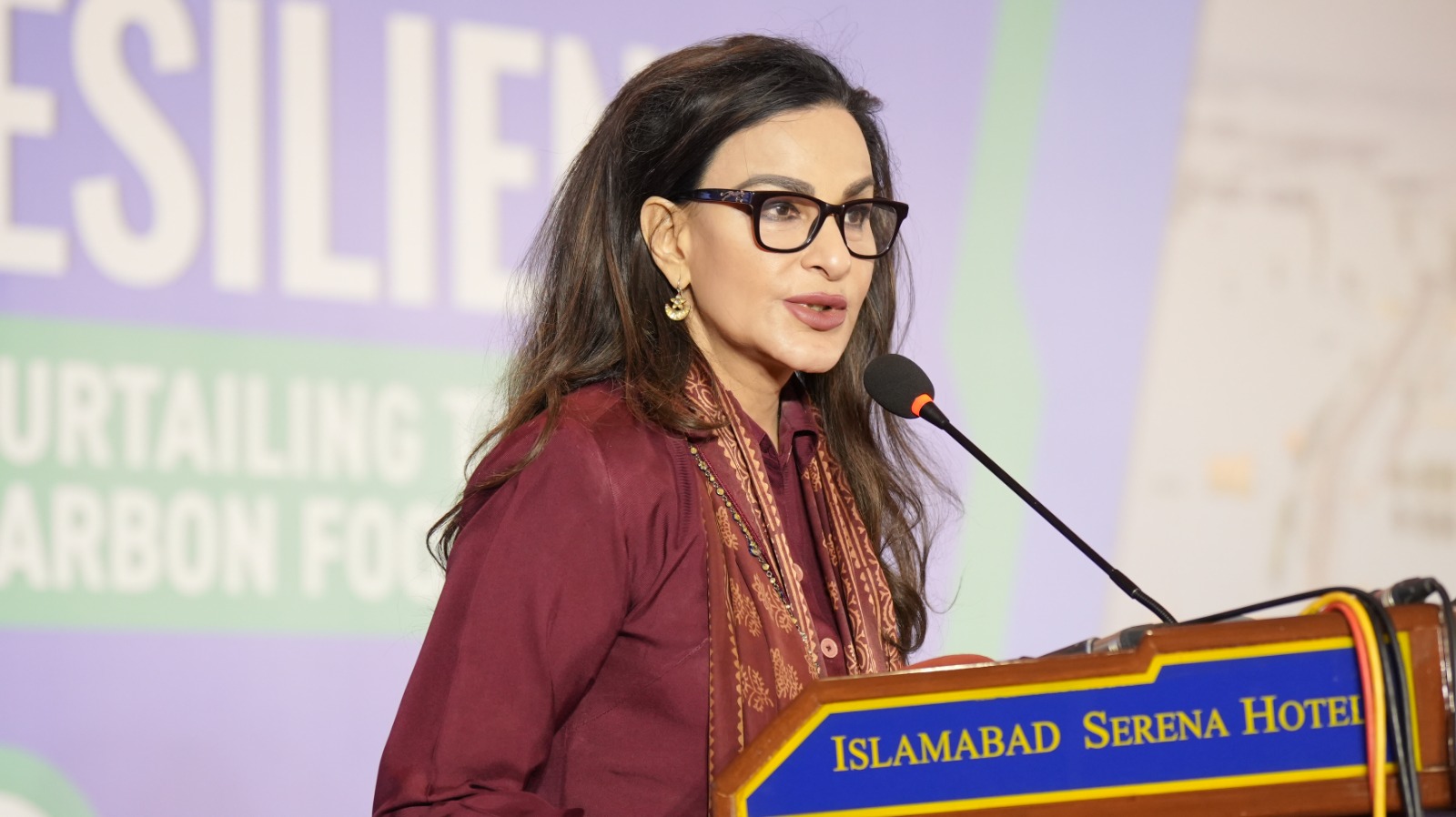
Chief Guest, Senator Sherry Rehman, graced the event with her presence. While addressing the audience about the increasing carbon footprints, she said, “Adaptation costs four times more than normal development initiatives.” She emphasized that resilience strategies cannot be one-size-fits-all; they must be tailored to Pakistan’s unique dynamics. This calls for innovative solutions that address our specific challenges effectively. “Pakistan’s transition away from fossil fuels is possible; we have the capacity to achieve it”, she affirmed. She also shed light on the ongoing battle against plastics and expressed skepticism about recycling being an effective solution, considering it more of a myth.

In his concluding remarks, CEO of NDRMF, Mr. Bilal Anwer said, “Our mission is to reshape and make Pakistan resilient, utilizing all available tools to achieve this goal. He mentioned that they are actively working on a policy that encompasses solutions for carbon markets, highlighting a proactive approach towards addressing climate challenges.